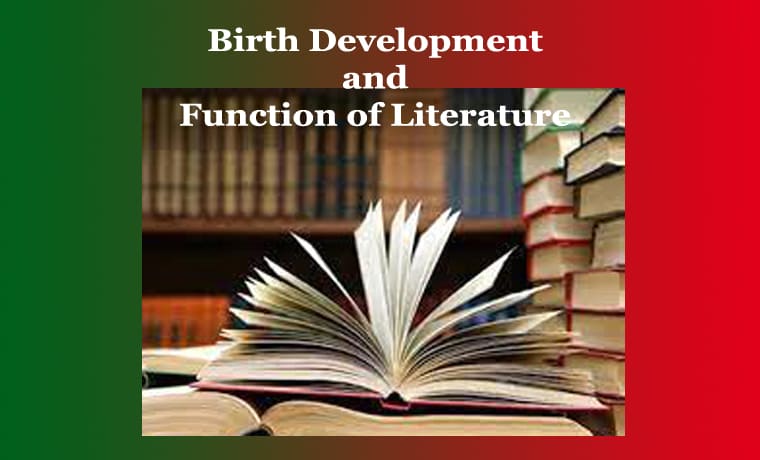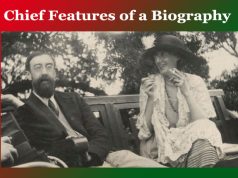Birth Development and Function of Literature
Birth Development and Function of Literature
Birth Development and Function of Literature
Introduction:
Literature, as a cultural and artistic expression, has a rich and diverse history that spans centuries and continents. Its evolution is intertwined with the development of human civilization, reflecting the societal, political, and technological changes that have shaped our world. In this comprehensive exploration, we will delve into the birth, development, and function of literature, examining its roots, its various forms, and its enduring significance in shaping human understanding and culture.
Birth of Literature:
Oral Tradition:
The origins of literature can be traced back to the oral traditions of ancient civilizations. Before the advent of writing, storytelling, poetry, and epic narratives were passed down orally from generation to generation. These oral traditions served not only as entertainment but also as a means of preserving cultural values, history, and mythologies.
Emergence of Written Language:
The birth of literature in written form is closely tied to the development of written language. The earliest known written texts, such as the Sumerian cuneiform tablets and Egyptian hieroglyphics, date back to around 3000 BCE. These early writings included religious texts, legal codes, and epic narratives, laying the groundwork for the literary traditions that would follow.
Development of Literature:
Ancient Literature:
Greek and Roman Epics: The works of Homer, including the “Iliad” and the “Odyssey,” and Virgil’s “Aeneid” marked the pinnacle of ancient Greek and Roman literature. These epic poems explored heroic deeds, morality, and the human condition.
Classical Chinese Literature: Chinese literature, with classics such as “The Analects” by Confucius and “Tao Te Ching” by Laozi, emphasized philosophical and moral teachings. Poetry, especially in the Tang and Song dynasties, also flourished.
Medieval and Renaissance Literature:
Medieval Epics and Romance: The medieval period saw the rise of chivalric romances, such as Arthurian legends and tales of courtly love. Dante Alighieri’s “Divine Comedy” and Geoffrey Chaucer’s “Canterbury Tales” are notable works from this era.
Shakespearean Drama: The Renaissance brought forth a golden age of English literature, with William Shakespeare’s plays exploring the complexities of human nature, politics, and morality.
Enlightenment and Romantic Literature:
Enlightenment Philosophy: Literature during the Enlightenment, exemplified by Voltaire’s “Candide” and Rousseau’s “The Social Contract,” engaged with reason, science, and social critique.
Romantic Poetry and Prose: The Romantic era produced works that celebrated emotion, nature, and individualism, with poets like William Wordsworth and novelists like Jane Austen leaving an indelible mark on literature.
The function of Literature:
Cultural Reflection:
Literature serves as a mirror reflecting the values, beliefs, and social structures of a given society. Through narratives, poems, and plays, authors capture the essence of their time, providing readers with insights into the cultural milieu in which the works were produced.
Social Commentary:
Literature has long been a vehicle for social critique and commentary. Authors use their works to address societal issues, challenge norms, and advocate for change. From Charles Dickens’ critique of industrialization in “Hard Times” to George Orwell’s dystopian vision in “1984,” literature shapes and reflects societal discourse.
Emotional Exploration:
One of the fundamental functions of literature is to explore the depths of human emotion and experience. Through characters and narratives, literature allows readers to empathize with diverse perspectives, fostering a deeper understanding of the complexities of the human condition.
Preservation of Cultural Heritage:
Literature serves as a repository of cultural heritage, preserving languages, traditions, and historical narratives. Sacred texts, epic poems, and folktales handed down through generations contribute to the continuity of cultural identity.
Conclusion:
The birth, development, and function of literature have shaped the course of human history, providing a lens through which we can examine the past, understand the present, and imagine the future. As a dynamic and evolving art form, literature continues to inspire, challenge, and unite people across time and cultures, underscoring its enduring significance in the tapestry of human expression. 0 0 0.
Birth Development and Function of Literature
Birth Development and Function of Literature
Some Essays on Literature
Origin and Evolution of Literature
The Common Characteristics of Literature
The Classification of Literature
The Functions of Literature
Literature and Society
Roles of Literature’ in Dissemination of Knowledge
The Role of Literature in the Evolution of Human Civilization
The Reflection of the Spirit of Age in Literature
Diverse Movements in World Literature
The Influence of Literature on Shaping Socio-Political Realities
The Roles of Literature in Fostering Political Revolution
Changing Movements of Literature in the Digital Age
Literature and Sword: A Comparative Exploration of Their Power
Definitions of Literature Through the Ages







